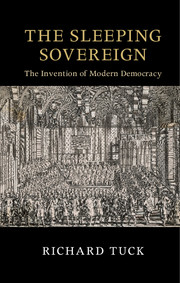3 - The eighteenth century
Published online by Cambridge University Press: 05 February 2016
Summary
The political positions taken up by Grotius, Pufendorf and Barbeyrac dominated the first half of the eighteenth century; their hegemony is illustrated by the distribution of Barbeyrac's great editions of De Iure Belli ac Pacis and De Iure Naturae et Gentium, in their Latin, French and English versions, which we can find in libraries from the Mississippi to the Urals. It will unquestionably have been Barbeyrac's French translation of Grotius which lay (as Rousseau later recalled) on his father's workbench. Indeed, Helena Rosenblatt has drawn our attention to the importance of these texts, and the more popular version provided by Burlamaqui, in the political struggles at Geneva in Rousseau's youth. It is striking that in the arguments she has documented between the democrats and the patricians in Geneva over the rights of the popular General Council against the small governing councils of the city, the distinction between sovereign and government was a recurrent theme in the writings and speeches of the democrats, and a denial of the distinction was equally part of the patricians’ repertoire. For example, the radical Jacques-Barthélemy Micheli du Crest described Geneva in a manuscript of the 1730s as a ‘democratic republic’, by which he meant ‘a free state, in which the people itself exercises the acts of sovereignty, without however exercising subordinate government’. Barbeyrac himself responded to Micheli, insisting that ‘the people of Geneva can be as sovereign as you please; it still does not exercise the acts of sovereignty itself’ – that is, what Micheli called merely a government was, in Barbeyrac's eyes, to be treated as an effectual site of sovereignty, exactly the point which Grotius and Pufendorf had made. But Micheli spent the last part of his life as a political prisoner in a Bernese gaol, whereas Barbeyrac died an honoured and successful jurist; as Rousseau observed, ‘truth is no road to fortune, and the people dispenses neither ambassadorships, nor professorships, nor pensions’. The commanding heights of the early eighteenth century belonged to Grotius and his followers, and their influence reached into all the prestigious areas of intellectual life – for example, contemporary classical scholarship was enlisted to endorse Grotius's and Barbeyrac's ideas about the sovereignty of the dictator in Johannes Jens's essay De dictatoribus populi Romani of 1698.
- Type
- Chapter
- Information
- The Sleeping SovereignThe Invention of Modern Democracy, pp. 121 - 180Publisher: Cambridge University PressPrint publication year: 2016

